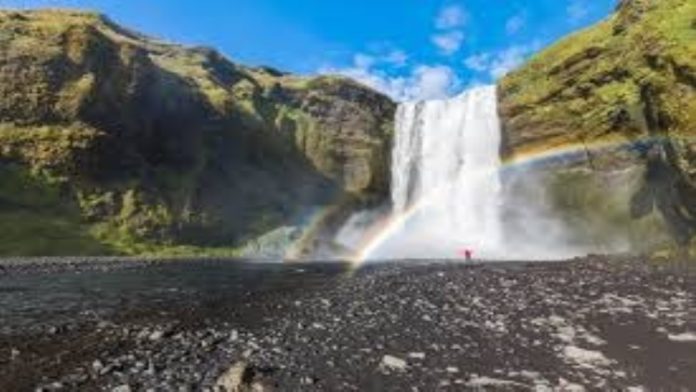Iceland, situated in the North Atlantic Ocean, stands as a remarkable environmental anomaly. With its breathtaking landscapes, geothermal phenomena, and steadfast commitment to sustainability, this small island nation has emerged as a global model for environmental preservation and responsible resource management. This article delves into the distinctive environmental facets of Iceland and the invaluable lessons it imparts to the rest of the world.
Pristine Air and Water Quality
Iceland’s environment is characterized by exceptionally pure air and water. Its remote location, limited industrial activity, and reliance on renewable energy sources collectively contribute to the preservation of its natural resources. Iceland boasts some of the cleanest air and water on Earth, providing a sanctuary for those seeking refuge from urban pollution.
The air in Iceland stands as a testament to purity infonetworth.com. Its low population density and lack of heavy industries result in air quality that is unmatched in many urban areas. Visitors and residents alike can revel in the crisp, unpolluted air that sweeps across Iceland’s awe-inspiring landscapes, invigorating the senses and enhancing overall well-being.
When it comes to water, Iceland’s commitment to purity is equally impressive. The country’s water supply is sourced from immaculate glacial rivers and subterranean springs. These sources are so pristine that the water necessitates minimal treatment before reaching households and businesses webtoon xyz. As a result, Icelanders have access to exceptionally high-quality tap water, devoid of the chemicals and contaminants that require extensive treatment in many other regions.
Pioneering Renewable Energy
Iceland’s unwavering commitment to sustainability is exemplified by its reliance on renewable energy sources. The nation heavily depends on geothermal and hydropower for electricity generation and heating. Geothermal energy, in particular, harnesses the Earth’s natural heat, making it a clean and abundant source of power. Iceland’s pursuit of renewable energy has not only reduced its carbon footprint but has also positioned it as a global leader in green energy technology.
Iceland has made notable strides in the field of renewable energy. The country’s extensive network of geothermal power plants taps into the Earth’s geothermal reservoirs to generate electricity and provide heating for homes and businesses. This utilization of renewable energy sources has not only decreased Iceland’s reliance on fossil fuels but has also established the nation as a trailblazer in geothermal technology.
The hydropower sector in Iceland is equally impressive. The nation’s numerous rivers and waterfalls offer a wealth of clean, renewable energy. Hydropower facilities harness the energy generated by these natural features, supplying electricity for both domestic use and export. Iceland’s commitment to hydropower aligns with its broader sustainability objectiv es, as it strives to transition away from fossil fuels and advocate for clean energy solutions.
Harnessing Geothermal Power
Iceland’s unique geological setting has blessed it with an abundance of geothermal activity. The nation’s landscapes are adorned with geysers, hot springs, and volcanic formations that showcase the Earth’s internal heat. These natural wonders not only attract tourists from around the world but also offer an opportunity to harness geothermal energy for electricity generation and heating.
Geothermal power plants in Iceland tap into the Earth’s heat by drilling deep wells into geothermal reservoirs. The pressurized steam and hot water produced by this process are employed to generate electricity, while the surplus heat is often utilized for district heating, providing hot water and heating to neighboring communities.
The Blue Lagoon, one of Iceland’s most renowned geothermal spas, epitomizes sustainable tourism. The Blue Lagoon utilizes excess geothermal water from a nearby power plant to create a soothing and rejuvenating experience for visitors. This innovative approach not only enhances the tourist experience but also minimizes waste and encourages the responsible utilization of geothermal resources.
Sustainable Fisheries Management
As an island nation, Iceland maintains a strong connection to the ocean and a thriving fishing industry. Sustainability is the linchpin of Iceland’s approach to fisheries management. The nation’s stringent regulations and quotas ensure the responsible harvesting of fish stocks, preventing overfishing and safeguarding marine ecosystems.
Iceland’s fisheries management system sets a sustainability benchmark. The government establishes catch limits for various fish species based on scientific assessments of their populations. These catch limits are then allocated to individual fishing vessels through a quota system. This approach guarantees the well-being of fish stocks and the long-term viability of the fishing industry.
The responsible management of Iceland’s fisheries extends beyond catch limits. The nation also attaches great significance to minimizing bycatch, preserving sensitive habitats, and promoting responsible fishing practices. Iceland’s dedication to sustainability in its fisheries sector has earned it certifications from organizations such as the Marine Stewardship Council (MSC), underscoring its unwavering commitment to sustainable seafood production.
A Global Leader in Renewable Transportation
Iceland’s commitment to sustainability extends to its transportation sector. The nation has made significant strides in promoting the adoption of electric vehicles (EVs). Incentives such as tax breaks and reduced import duties have spurred the adoption of EVs, contributing to cleaner air and reduced greenhouse gas emissions.
Iceland’s distinctive energy infrastructure, fueled by abundant renewable sources, makes it especially suited for electric vehicles. The nation’s devotion to sustainability aligns with the worldwide shift towards cleaner transportation solutions. As the world grapples with the imperative to curtail emissions from vehicles, Iceland serves as an example of how renewable energy can power a greener future.

